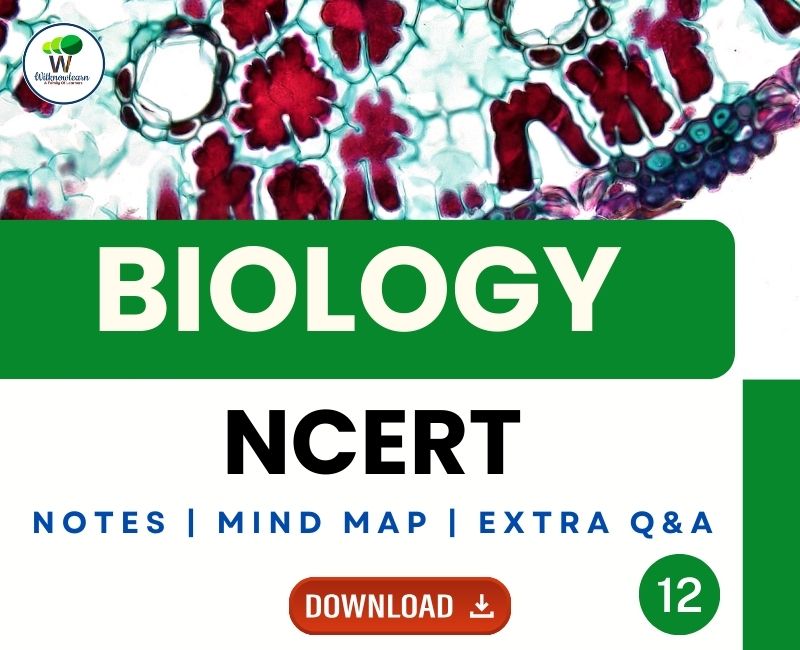Biotechnology Principles and Processes class 12 Notes, Mind Map and Extra Questions Answers
Welcome to the fascinating world of biotechnology principles and processes! In this comprehensive article, you will find the perfect guide to understanding the fundamental concepts of biotechnology, complete with detailed class 12 notes, mind maps, and extra question answers. Biotechnology is a rapidly expanding field that combines biology and technology to revolutionize various industries, such as medicine, agriculture, and environmental conservation.
By manipulating living organisms at the molecular level, scientists can create new and improved products, develop innovative therapies, and solve complex problems. Whether you are a student preparing for your exams or a curious mind seeking to delve deeper into biotechnology, this article has you covered. Our notes cover all the essential topics, providing a clear understanding of key principles and processes.
Additionally, our mind maps offer a visual representation of the interconnected concepts, making it easier to grasp complex ideas. So, embark on this enlightening journey into the world of biotechnology and unlock the doors to endless possibilities. Let's dive in together and explore the incredible potential of biotechnology principles and processes!
Biotechnology Principles and Processes is a key chapter in Class 12 Biology, offering students a comprehensive understanding of the fundamental concepts and methodologies used in biotechnology. Biotechnology Class 12 Notes, specifically tailored to this chapter, delve into various biotechnological techniques and their applications in different fields. These notes cover a wide range of topics, from genetic engineering to the use of bioreactors, providing students with a detailed understanding of how biotechnological processes are harnessed for human benefit.
For a more visual learning experience, Biotechnology Principles and Processes Class 12 Mind Map serves as an excellent tool. It encapsulates the core concepts of the chapter, such as DNA cloning, gene transfer methods, and bioprocess engineering, in an easily understandable format. This helps students in quick revision and reinforces their understanding of complex topics.
Biotechnology Class 12th also addresses the ethical, ecological, and safety aspects of biotechnology, which are crucial for students to understand the responsible use of biotechnological techniques. Biotechnology Notes for Class 12 comprehensively explain these aspects, ensuring students are not only scientifically informed but also ethically aware.
In the context of exam preparation, Biotechnology Class 12 MCQs are an invaluable resource. These multiple-choice questions test students' understanding of key concepts and are particularly useful for those preparing for competitive exams like NEET. They help in assessing comprehension and application skills in the field of biotechnology.
Class 12 Biology Chapter 9 Notes focus specifically on the principles and processes of biotechnology. These notes offer in-depth explanations of biotechnological techniques, their scientific basis, and practical applications. They are essential for students who wish to excel in their Class 12 Biology exams and for those aspiring to pursue higher studies in biotechnology or related fields.
In summary, Biotechnology Principles and Processes Notes Class 12 provide a thorough grounding in the field of biotechnology. With the aid of detailed notes, mind maps, MCQs, and a focus on both theoretical and practical aspects, students can gain a comprehensive understanding of this exciting and rapidly evolving field of science.
Principles of Biotechnology
Biotechnology is based on two core principles: Genetic Engineering and Bioprocess Engineering. Genetic engineering involves the modification of the genetic makeup of organisms to improve their utility. This includes techniques like gene cloning, recombinant DNA technology, and gene editing. Bioprocess engineering involves the use of living organisms or enzymes to synthesize products useful to humans, which includes fermentation and culturing cells in bioreactors under controlled conditions.
Processes in Biotechnology
Key processes in biotechnology include the isolation of genetic material, gene amplification using Polymerase Chain Reaction (PCR), gene insertion into vectors, and the expression of introduced genes in host organisms. Further processes include downstream processing for product recovery and purification. These processes are fundamental in creating genetically modified organisms (GMOs) and producing biotechnological products.
Applications of Biotechnology
Biotechnology has vast applications in various fields. In healthcare, it's used for producing insulin, vaccines, and monoclonal antibodies. In agriculture, it contributes to the development of pest-resistant and high-yield crops. Biotechnology is also essential in industrial processes for producing enzymes, biofuels, and biodegradable plastics. Additionally, it plays a role in environmental conservation through bioremediation techniques.
Importance of Biotechnology in Various Industries
Biotechnology is vital across multiple industries due to its role in developing sustainable solutions and innovative products. It aids in enhancing food production, improving health outcomes through medical advancements, and offering eco-friendly solutions in industrial manufacturing. Biotechnology's contribution to genetic research and diagnostics cannot be overstated.
Biotechnology in Agriculture
In agriculture, biotechnology is used to develop genetically modified crops with improved yield, resistance to pests and diseases, and better nutritional value. Techniques like CRISPR and gene silencing are used for crop improvement and to ensure food security.
Biotechnology in Medicine and Healthcare
Biotechnology revolutionizes medicine and healthcare by providing advanced diagnostic tools, effective treatment methods, and vaccines. It enables the production of therapeutic proteins, gene therapy for treating genetic disorders, and personalized medicine.
Biotechnology in Environmental Conservation
Environmental biotechnology involves the use of microbes and plants for the cleanup of contaminated environments, waste management, and pollution control. Bioremediation and phytoremediation are key techniques in managing environmental issues.
Biotechnology in Food Production
Biotechnology in food production involves the use of microorganisms for the fermentation of food products like yogurt, cheese, and bread. It also includes the development of food additives, nutritional supplements, and genetically modified foods with enhanced quality and shelf life.
In conclusion, biotechnology plays a critical role in advancing various industries, from agriculture to medicine, and environmental conservation to food production. Its principles, processes, and applications are integral to developing innovative solutions for the betterment of society and the environment.





